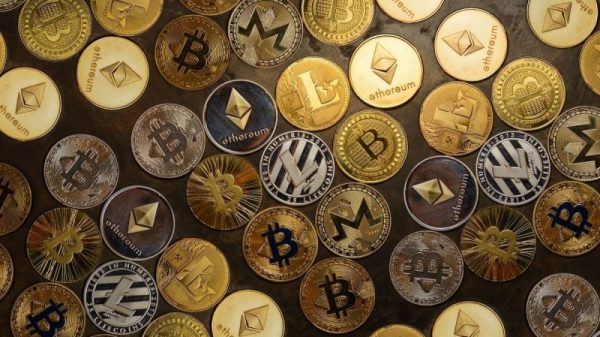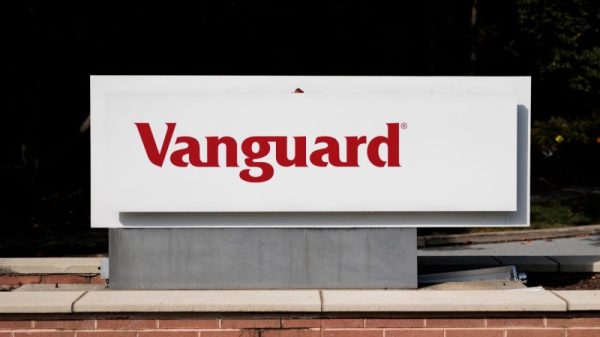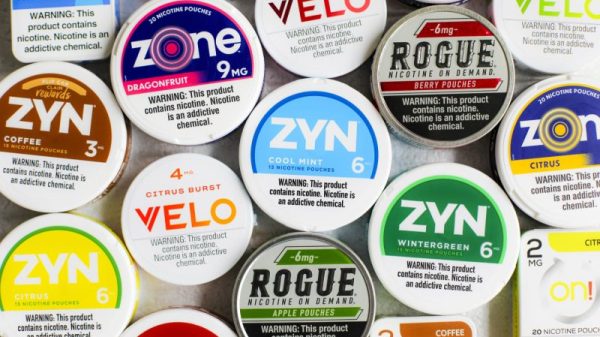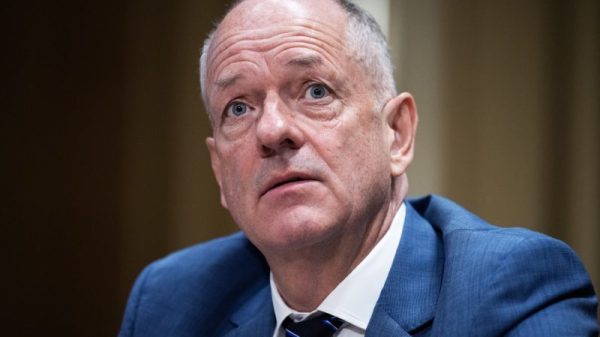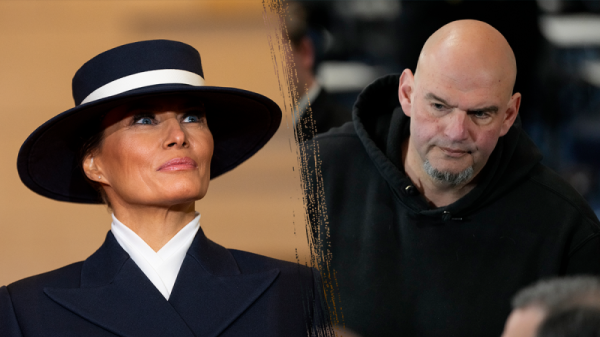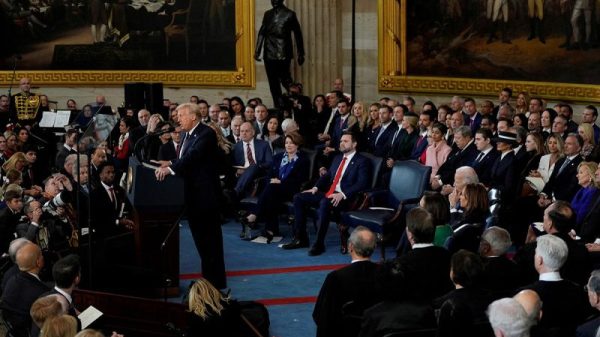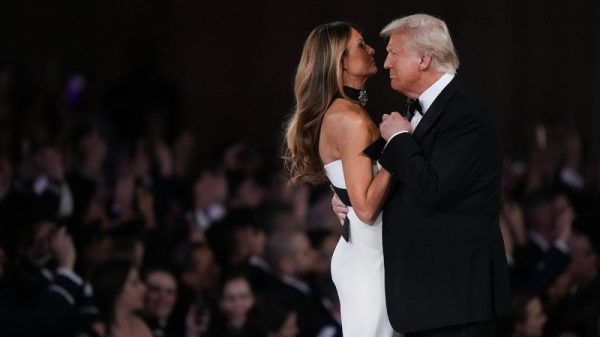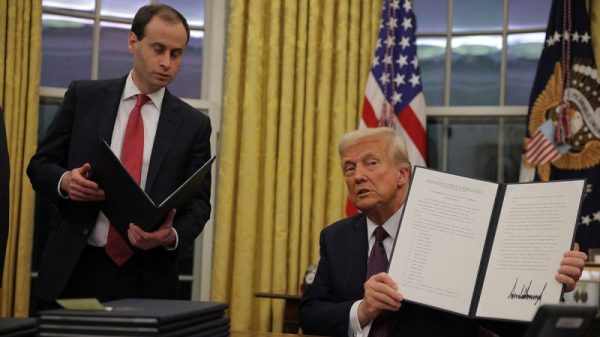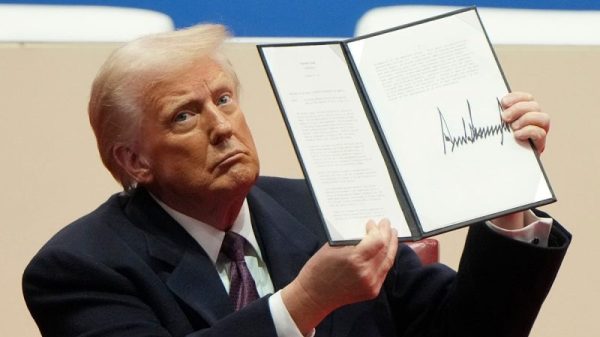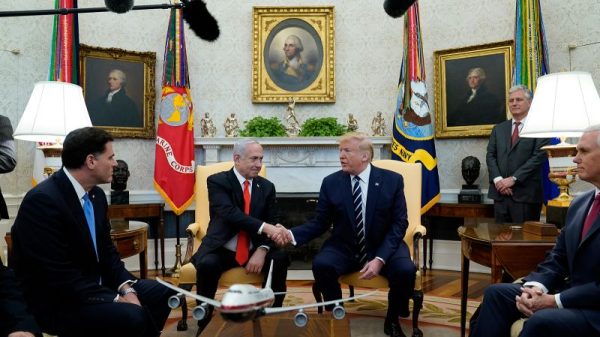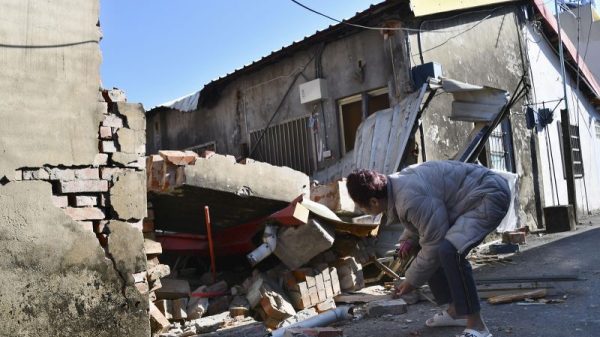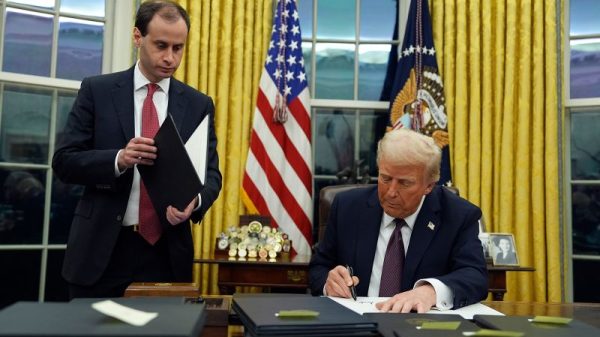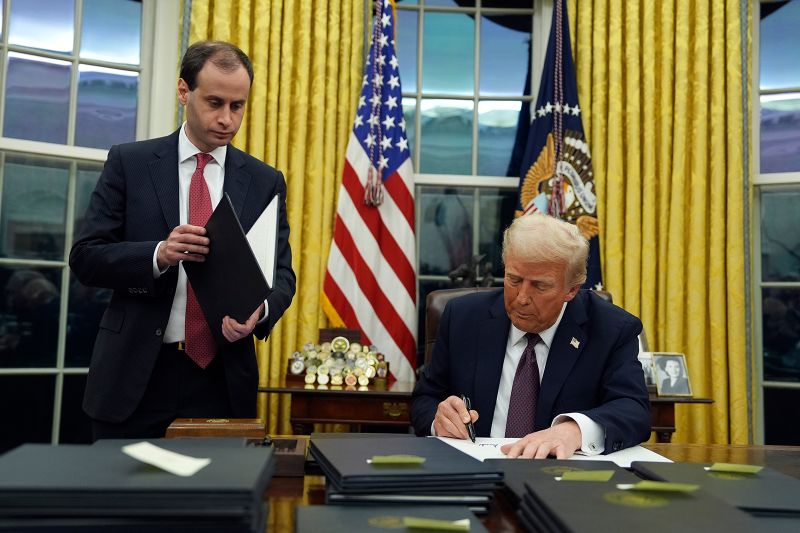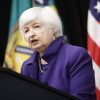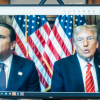For many of America’s 170 million TikTok users, US President Donald Trump’s move to delay a legal ban of the popular social media platform was cause for celebration.
But in China, where TikTok’s parent company is based, the reception has been less positive, largely because Trump has suggested he could require the company to give up a 50% stake to avert its shutdown.
The future of TikTok should be “decided by companies” in line with Chinese law, China’s Foreign Ministry said Monday ahead of Trump’s inauguration.
The US should “earnestly listen to the voice of reason” and “provide an open, fair, just and non-discriminatory business environment” for companies from all countries, spokesperson Mao Ning said when asked about the joint venture proposal.
Hours after his inauguration Monday, Trump issued an executive order delaying for 75 days the enforcement of a controversial law, which requires that TikTok be banned in the US unless it sells to a buyer from America or one of its allies.
The executive action followed a pledge from Trump on Sunday that he would delay enforcement. TikTok said that assurance allowed it to come back online after going dark for more than 12 hours over the weekend.
The delay will help the Trump administration “determine the appropriate course forward in an orderly way that protects national security while avoiding an abrupt shutdown of a communications platform used by millions of Americans,” the order said.
Trump has repeatedly suggested that he could be open to an American buyer purchasing half of the company and running it as a 50-50 joint venture with its current Chinese owner ByteDance.
A joint venture involving a US firm with a 50% stake in TikTok would soften the letter of the controversial law, though it’s unclear whether US lawmakers or TikTok, which denies that it poses a national security risk to Americans, would accept it.
Backlash in China
On Chinese social media, where TikTok’s fate has appeared as one among many efforts from the US to stymy Beijing’s technical prowess, Trump’s suggestions were met with distain.
Tens of millions of users on the social media platform Weibo flocked to hashtags related to the potential 50-50 ownership, with many decrying the US government’s “robbery.”
“Apple and Tesla should also give up 50% of their shares to Chinese companies then,” one comment with thousands of likes said.
“We need 50% control of Nvidia then!” said another commentator, referring to the US chipmaker.
“China will not let ByteDance kneel down,” another comment read, referring to TikTok’s parent company. “Robbery does not change its nature just because it changes from 100% to 50%,” the comment added.
Media giant ByteDance does not operate TikTok in China, but its sister app Douyin is popular domestically.
Meanwhile, an editorial in the state-run nationalist tabloid Global Times on Tuesday looked at the handling of the US ban and concluded that “the trap some Americans set for TikTok has ensnared them instead.”
“The political manipulation of an overstretched concept of security against TikTok has not only caused fluctuations in the emotions of the American public, but has also led to ‘deep personal pain’ for some who rely on it for their livelihood,” the editorial read.
TikTok and tariffs
Despite the uncertainty around the fate of TikTok, both the US and China have appeared to show their interest in dialogue as the new administration gets underway.
In a phone call with Trump on Friday, Chinese leader Xi Jinping called for a “new starting point” in US-China relations and stressed their “extensive common interests.” Trump noted that the call included discussion of TikTok.
Xi also dispatched Chinese Vice President Han Zheng to Trump’s inauguration, the seniormost official Beijing has ever sent to an American presidential inauguration.
Trump’s executive order on TikTok stands as one of a range of signals from the newly sworn-in president that he is willing to negotiate with Beijing, despite campaigning on a hardline stance on the country, the US’s key geopolitical rival.
Trump on Monday also refrained from slapping tariffs on Chinese goods, something observers suggested could be on his day one agenda. While on the campaign trial, Trump threatened upwards of 60% tariffs on Chinese imports into the US, and Beijing has been braced for sharper economic competition with the US under his term.
When asked about those tariffs Monday, Trump said duties he imposed as president the first time around were still in place. He did not name any timeline within which when he might levy more duties, despite saying tariffs against Mexican and Canadian goods were likely to go into place February 1.
But Trump also suggested tariffs could be linked to TikTok’s fate – raising questions about the kind of hard bargaining the president may have in mind in the months ahead.
In remarks in the Oval Office Monday, Trump posited levying as much as 100% tariffs on China if Beijing didn’t approve a potential future agreement.
“If we wanted to make a deal with TikTok and it was a good deal and China wouldn’t approve it … I think ultimately, they’d approve it because we’d put tariffs on China, maybe,” he said, while suggesting this wasn’t the only approach he could take.
Beijing has previously suggested it has the legal authority to block any deal involving TikTok, because a sale or divestiture would involve “exporting technology” – an apparent reference to the potential sale of the app’s proprietary algorithm.
Trump ally and Tesla CEO Elon Musk also joined the fray discussing the future of TikTok by alluding to the “need for change” in comments Sunday on X, the social media platform he owns. According to Bloomberg and the Wall Street Journal, Chinese officials are discussing a possible option that involves selling at least a portion of the US version of the app to Musk’s X.
Musk pointed out how X is not available in China. Most major American-owned tech platforms are blocked in the country due to Beijing’s stringent controls on speech and information under the so-called Great Firewall.
“I have been against a TikTok ban for a long time, because it goes against freedom of speech,” Musk wrote. “That said, the current situation where TikTok is allowed to operate in America, but 𝕏 is not allowed to operate in China is unbalanced. Something needs to change.”


